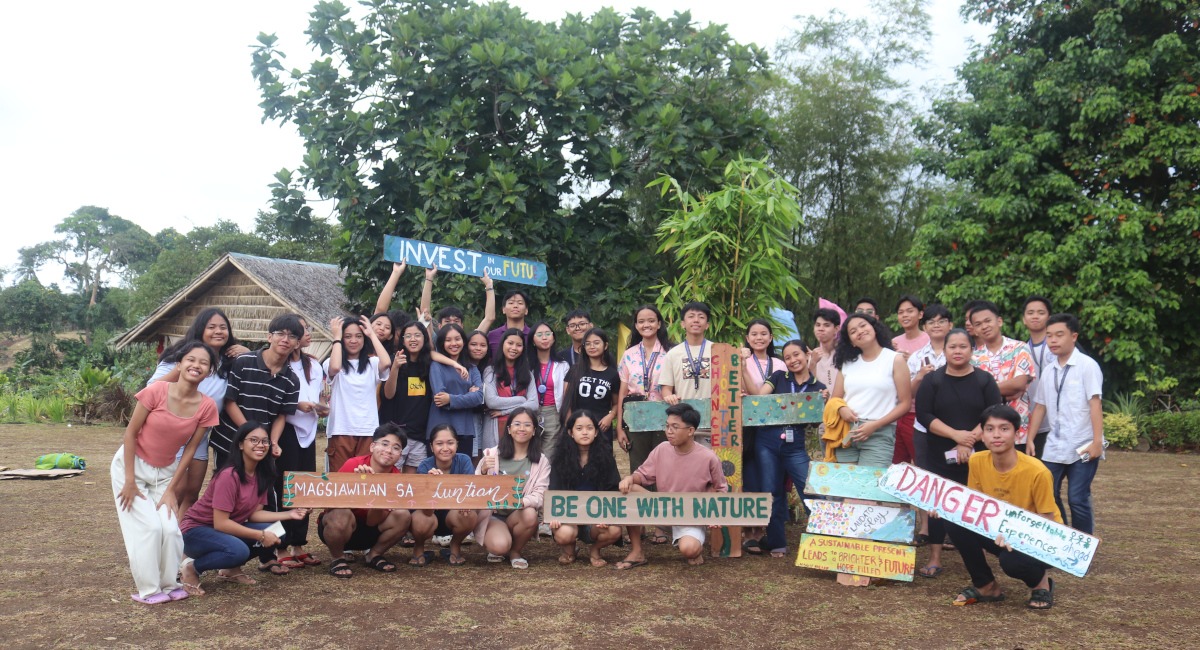
They were youth leaders from the Ateneo de Naga University (ADNU) Senior High School Youth Christian Life Community (YCLSi’), who were gathered for a three-day outdoor camp to inspire and capacitate young people in defending and caring for our common home. In this first installment of the programme, titled Laudato sí Youth Camp Series, the theme was “The Earth is Dying, What a Solid Waste!” with a focus on reducing and mitigating the impacts of improper segregation, overconsumption, and plastic pollution. Among the objectives of the camp was to bridge the widening gap among Catholics between their love and devotion to Mother Mary and Mother Nature.
For many of the youth organisers, the event was a long-awaited fruit of their discernment and exposure as participants of the Jesuit Conference of Asia Pacific’s (JCAP) flagship project, Caring for Communities and Creation. They had been formed to lead in addressing the climate and environmental issues faced by their communities. Among them was Alyza Marie Betito, a campus minister at ADNU’s Senior High School and moderator of YCLSi’. She has been transformative in keeping aflame the burning hearts of the youth in leading projects and initiatives for the environment. The student project heads and organisers owe the success of their project to her for keeping their passion and commitment alive.
In Laudato sí, Pope Francis highlights the importance of integrated and collective action to address the interlaced and overlapping issues of climate change. True to this, the camp was a collective effort of various offices and individuals, sharing the same vision of transforming the youth to be stewards of God’s creation. The university, JCAP, the local government, and Living Laudato Si’ PH all lent a helping hand towards realising a shared goal.
The camp was not the end of the youth leaders’ discernment but only the beginning of their transformation, their metanoia. In the same way they were ignited by JCAP’s flagship project to lead initiatives for the environment, they now have the desire to spread this flame of hope to more young people and empower them to be leaders and voices in their communities. Among the event’s objectives was to inform and capacitate the youth to lead Laudato Si’ initiatives or projects. This was done by exposing them to the reality of environmental degradation and teaching them how to lobby and write policies to address these issues.
In the upcoming Peñafrancia Festival, the biggest religious gathering in Bicol held annually in September, devotees of Inang Peñafrancia, Mother Mary, converge in the pilgrim city of Naga. Amidst this spiritual fervour, YCLSí hopes to address the concerning issues of waste segregation and dependence on single-use plastic among the devotees. Through lobbying policies, collaborating with the local government unit and the diocese, and informing the public, they aim to ignite transformation in the community’s attitudes towards waste management. Their goal is to be kindlers of hope for both the present and future generations, fostering a more sustainable and responsible approach to celebrating their faith.







